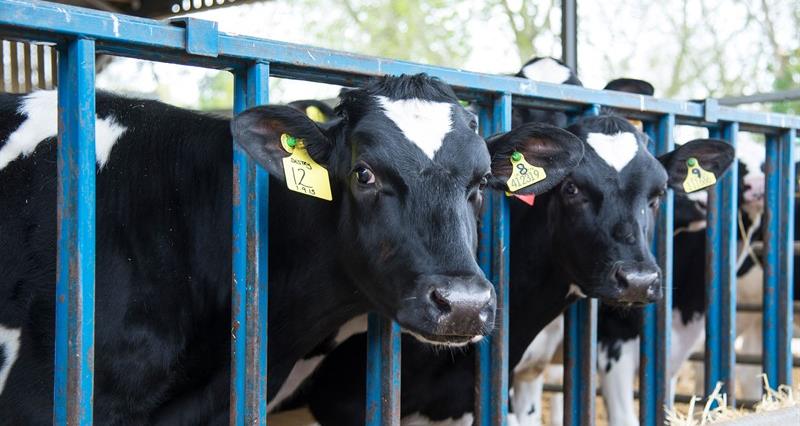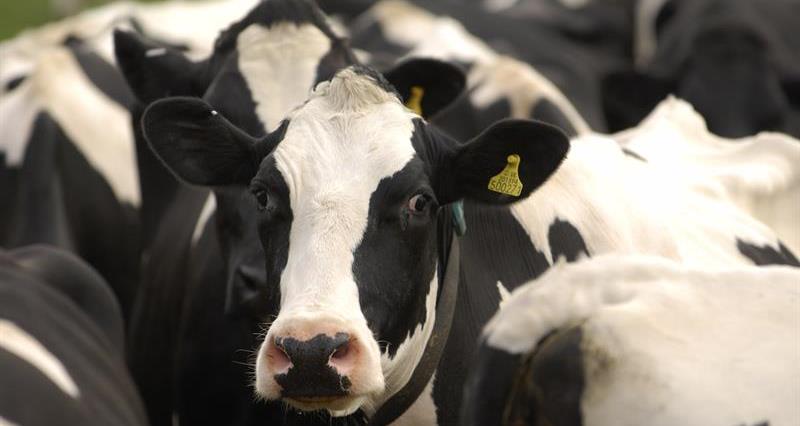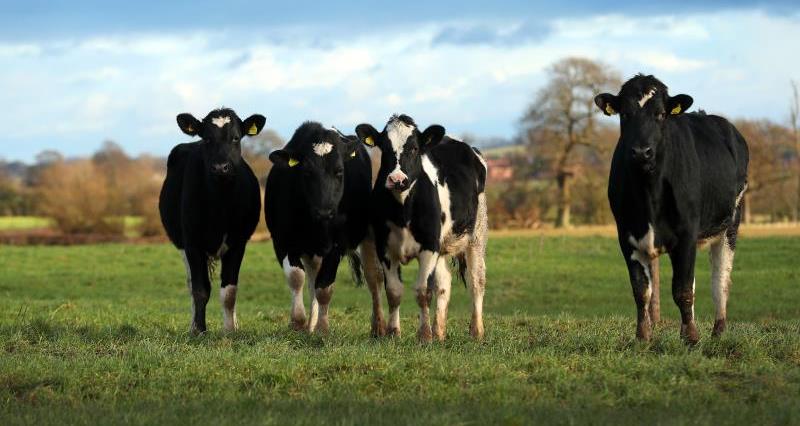Unfair milk contracts have long been an area of concern for the dairy sector for many years, going back to the Voluntary Code of Practice for Dairy Contracts, which came in in 2012. A significant proportion of the calls that we receive are from farmers with issues which ultimately relate back to their milk contract.
In 2018, an industry-wide review of the Groceries Code Adjudicator, found that there was an uneven distribution of power within the dairy sector. In 2020, Defra launched a consultation on contract regulation which found strong support for a statutory baseline to help ensure all contracts meet an acceptable standard.
Since then, Defra has worked closely with industry to which passed through the Houses of Parliament, with cross bench support, and was ŌĆśmadeŌĆÖ on 16 April 2024.
From 9 July 2024, all new contracts issued must comply with the legislation.
From 9 July 2025, all existing contracts must also comply.
The legislation will be enforced by the new ASCA (Agricultural Supply Chain AdjudicatorŌĆÖs Office).
The ASCA enforces the Fair Dealing Regulations on behalf of the Secretary of State for Defra. It has also set out additional guidance for the new regulations which can be found at: .
What's wrong with contracts now?
Contracts are critical to determining the business relationship that exists between farmers and milk buyers.
However, most milk contracts in their current form do not create mutually balanced business relationships between buyers and sellers and often rights, and obligations, are heavily biased in favour of buyers.
At times of pressure, when the market is low or a business unstable, purchasers have the ability to change contract terms and pricing mechanisms, even, in some instances, to introduce retrospective penalties and price cuts without negotiation.
The Covid-19 crisis saw many of these scenarios play out. Farmers were hit with price cuts at no notice, unilateral implementation of A/B quotas, a lack of transparency over pricing and delayed payments.
This resulted in significant pressures on producers during this challenging period.
The UK farming unions want to see freely negotiated and fairly balanced contracts which are tailored to the needs of both buyers and farmers.
Fairer contracts should increase transparency and trust, to the benefit of both, and any changes should be mutually agreed. Farmers should also be free to take legal or professional advice about the terms of their contracts, to ensure that they fully understand their position prior to signing a contract.
This is not about creating a tool for farmers take advantage of processors with; it is a rebalance of risk, and an opportunity to address some major issues in the dairy supply chain to create a better future for the entire industry.
What does the new legislation say?
The Fair Dealing Obligations (Milk) Regulations 2024 (ŌĆ£the regulationsŌĆØ) introduce mandatory minimum terms for dairy contracts which must be adhered to.
The regulation covers all cowsŌĆÖ milk sold by a dairy farmer to a milk buyer. (The regulations do not currently extend to non-cowsŌĆÖ milk products, such as goatsŌĆÖ milk.)
We have developed a detailed legal briefing on the exact terms of the legislation.
The main areas which the legislation covers include:
Price
There will be greater transparency on price for the farmer. The regulations allow a flexible approach for a number of different pricing mechanisms to be used to set the price of milk.
If a milk contract contains a variable price, there are mechanisms in place to ensure that price can only move in reference to agreed factors, and also gives powers for farmers to challenge prices that they feel have not followed the correct process.
The regulations do not directly legislate what prices should be and will not, for example, introduce minimum prices.
Cooling off periods
Contracts must include a 21-day cooling off period, during which farmers can terminate their contracts without notice with no penalty or liability.
This ensures that farmers have the opportunity to properly consider the terms of their contracts, taking independent advice if they wish to do so, before being committed to the contract.
This is important given that the notice periods can be lengthy.
Notice periods
The legislation sets out maximum notice periods to be given by the farmer and minimum notice periods to be given by the processor for contracts of more than 12 months.
A processor must give a farmer a minimum of 12 monthsŌĆÖ notice to terminate the contract. A farmer has the right to a maximum of 12 monthsŌĆÖ notice if they wish to terminate the contract.
The regulation also allows a farmer to terminate more swiftly in certain circumstances, such as when a milk buyer misses payments for milk or is insolvent.
Variation
All variations to the contract must be agreed by both parties. This means that milk buyers cannot enforce changes without the permission of the farmer or the representative organisation of which the farmer is a member. (This will not apply where the purchaser has an internal democratic structure, as defined in the regulations, for example a co-op, or the producer is a member of a PO.)
Exclusivity
Exclusive contracts (where a farmer must send every single litre they produce to a processor) will be prohibited where the milk contract is for a fixed volume; it will also not be possible to have tiered pricing in an exclusive contract.
For example, our understanding is that if a processor pays 40ppl for one million litres of milk, and 30ppl for any milk over this amount, this would be deemed as tiered pricing, and the farmer would have the right to sell milk to multiple buyers if they choose.
Farmer representation
The regulations allow farmer-owned structures, such as co-ops and Producer Organisations, to have greater flexibility in terms of the contracts they are able to negotiate. The fact that these organisations negotiate on behalf of a number of farmers increases their bargaining power, which should put them in a stronger negotiating position than individual farmers.
How will the regulations be enforced?
The legislation contains extensive powers for the Secretary of State to oversee and enforce the code. A farmer has the right to refer concerns about contracts which may breach the regulations to the Secretary of State.
Where the Secretary of State finds that there has been a breach of the regulations, they will be able to impose a financial penalty and/or require the processor to pay compensation to the farmer.
The Secretary of State established an , who will (among other things) enforce the regulations on behalf of the Secretary of State.
╗╩╝ę╗¬╚╦will continue to seek opportunities to engage with Defra to ensure that the AdjudicatorŌĆÖs office is fit for purpose and has the confidence of our producer members.
We will be setting up a number of regional meetings and producing materials to assist our dairy members in understanding the regulations. Free initial legal and professional advice is also available to NFU members through NFU CallFirst.
NFU members can log in to read our legal teamsŌĆÖ deep dive into the provisions contained in the legislation. The briefing highlights key provisions relating to matters such as pricing, notice periods and termination provisions.
NFU farmer and grower members can also access the NFUŌĆÖs Contract Checking Service. The Contract Checking Service is a service offered by the NFUŌĆÖs panel firms of solicitors, in association with the Legal Assistance Scheme.┬ĀThe service is available to all members, and can be accessed via NFU CallFirst on 0370 845 8458.
Under the Contract Checking Service, the NFUŌĆÖs panel firms will provide a fixed fee quote for carrying out an initial review of a contract and producing a report, based on your objectives and requirements.
The fee will vary depending on the length and complexity of the documents, but prices can start from as little as ┬Ż275 plus VAT for the initial report.
If you wish, the panel firm will also be able to consider the contract in more detail and assist with the renegotiation of specific terms, as well as advising on the implications for your business; this later stage will be charged at the firmŌĆÖs standard hourly rate, minus a 12.5% discount for NFU farmer and grower members.
LAS (Legal Assistance Scheme) subscribers can apply for a contribution of ┬Ż250 per contract, up to a maximum of four contracts at ┬Ż1,000, from the NFUŌĆÖs Legal Assistance Scheme as part of the contract checking package. The panel firms will be able to advise on all aspects of a contract, including whether it is compliant with the new regulations.
We will also be carrying out work to raise awareness of options which can improve representative power within the sector, such as Producer Organisations. If you are interested in being involved in this work, speak to your local county adviser or look out for future online engagement opportunities.




